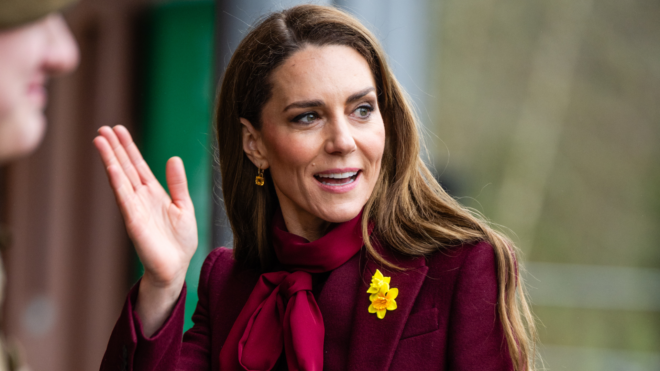I don't actually hate Mother's Day. At least, not anymore. But for a really long time, I hated it more than I hate diarrhea, nails scratching a chalkboard, infomercials with loud, obnoxious sales people and weighing myself after Thanksgiving.
That's the kind of hate we can all stand behind, am I right?
OK, maybe not. Here's the thing, Mother's Day, with all its sweet Hallmark cards of endearment and Lifetime movies about maternal love makes kids without moms feel like crap.
I was one of those kids. Still am, technically.
My mom wasn't dead, at least not when I was a young, motherless daughter. She was an "unfit" mother — basically a deadbeat — but it seems disappearing dads have a monopoly on that term.
I was raised along with my older brother by our uncle and his partner. Yes, he was gay, and that meant I had two dads, and a very invisible mother.
RELATED: I Was Raised by Gay Parents
As a child in elementary school, teachers (every stinking year) made us write Mother's Day cards and asked us to share the things we loved about our mothers. It was awful. We gave our Mother's Day cards to our uncle (I call him my dad but really, he was a mish-mash of both a mother and a father to us; if he was a celebrity couple, he'd have a cool nickname like Moather, or Dadom).
We knew we were different.
Mother's Day felt embarrassing and awkward and stressful. It was one more moment in the year when I was reminded that our mother didn't stick around, that our family looked nothing like the families on Mother's Day commercials advertising jewelry and flower bouquets, and that I had no idea what it meant to have a mom.
There was never a Mother's Day card that said "You're the best stand-in mother I've ever had. Thank you for being the only stable parent I've known. Happy Mother's Day, Uncle!"
There were no movies that explored the narrative of a daughter or son dealing with abandonment issues because of their mother — at least we hadn't seen them if there was.
So Mother's Day felt embarrassing and awkward and stressful. It was one more moment in the year when I was reminded that our mother didn't stick around, that our family looked nothing like the families on Mother's Day commercials advertising jewelry and flower bouquets, and that I had no idea what it meant to have a mom.
Over the years, I spent occasional weekends and holidays with my mother, but not one Mother's Day. Even so, I never felt a strong emotional bond to her, and by the time I was 10, I stopped seeing her altogether.
About three months before I turned 16, my mother was murdered.
For the three years in between her death and my first Mother's Day as a mother myself, I completely blocked her out of my mind. It was as if she'd never existed, as if Mother's Day wasn't a thing; as if every May there was a missing day on the calendar when other people observed some unknown-to-me ritual.
I floated in between two extremes until four months after my first son was born. It was the day I received my first Mother's Day card.
RELATED: Learning to Love Mother's Day Again
I'd like to tell you that it gave me a sense of rebirth and purpose, and that all those years of denial fell away like a dank cocoon, with a bright, smiling mommy in its place.
Nope. I felt like a fraud. I had no clue what it meant to be a mother. Every maternal instinct I had was an experiment in firsts. I basically made the rules up as I went, and without a strong mother-figure in my life to look up to, or relay my thoughts and fears to, I felt more alone in the early stages of motherhood than I could admit.

I know that is true for many moms, even ones that had moms while growing up. But I think it's impossible to understand the depths of my confusion unless you experienced an absentee mom as well. I mean, just look at animals in the wild. The babies who don't have moms don't survive.
So I kept right on hating Mother's Day, just in secret. I smiled and said thank you whenever someone wished me a happy Mother's Day, but I cringed on the inside. I didn't feel deserving of the well-wishes. I didn't feel like a real mother, the ones in the movies and on TV who just knew the right things to say and do for their families. (I know, they aren't actually real, but I didn't know the difference, at least not yet.)
Four years into this facade, I received my first hand-written card from my oldest son. He was in preschool and the writing was near-illegible, but there was a stick figure flower on the cover, and a proclamation that I was loved "verry mutch" inside, with an outline of his tiny, chubby hand.
I realized then that neither of my sons would ever experience the shame or feelings of inadequacy that I had felt as a motherless child — because I would always be there for them, every year, every day, every moment of their lives. That's when I first felt like I was really a mom, not a pretender.
It had never occurred to me until then that the simple act of being there for our children was what motherhood was all about.
Eventually, I learned to forgive my mother for her inability to be a figure in my life. I am stronger because of adversity. I am more compassionate because I have known hurt. I am grateful that she gave me the gift of life, and that this life includes the amazing opportunity to be a mother, imperfect as I am, to my beautiful sons.
I don't hate Mother's Day anymore. I don't. I just hate that somewhere, each Mother's Day, another child might be feeling the way I felt when I was younger. Maybe we can be more sensitive to those kids and let them know that sometimes people don't have mothers, and that's OK, too.
Share this on Facebook?




